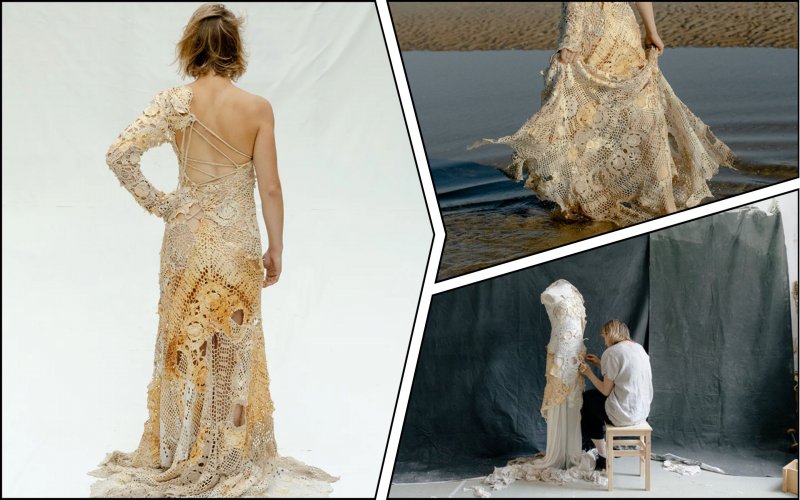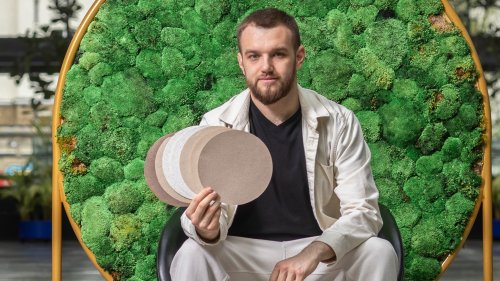Ukrainian designer and researcher Dasha Tsapenko created a unique biodegradable dress for her own wedding from linen lace and mushroom mycelium.
The dress combines handwork, Ukrainian traditions with innovative biotechnologies, reports designboom.
The material said that the designer bought traditional lace at "flea" markets and craft fairs.
"Tsapenko's wedding dress experiment, a new expression of these traditions, initiated a new wedding ritual — growing and sewing clothes in cooperation with nature, and then burying them in a special place when they have fulfilled their mission," designboom emphasized.
It is noted that this dress can simply be buried in the ground, where fungal spores will begin to germinate and decompose the fabric.
"Memories should be kept in the heart, not in the closet," Tsapenko emphasized the value of these ephemeral clothes.
She said she placed sterilized pieces of lace in a special nutrient medium and seeded them with spores. In two weeks, the mycelium biomass fused the lace fragments into a solid fabric. The dress has a natural color range from milky white to beige-brown and an uneven texture. Then mushroom mesh was sewn into a dress. The fabric was soft and pleasant to the touch.
It is noted that thanks to this technology, the designer can independently control the degree of mushroom growth, and therefore the density of the material. After removal from the nutrient medium, mycelial growth stops.
Tsapenko said that at the wedding she exposed the dress to sea water and wet sand. The material turned out to be strong and did not change after exposure to natural elements. She plans to create a bio atelier to grow couture clothes to order.
Let us remind you that in the world of fashion, a new trend of a conscious approach to the production and selection of clothes is gaining momentum, which is called slow fashion – "slow fashion".
As EcoPolitics reported earlier, in Ghana, which is in Africa, 15 million units of "second hand" goods are brought to the Kantamanto market every week, which were given for recycling or charity somewhere in America, Europe or China. However, approximately 40% of imported clothing goes to landfill, which is growing at an alarming rate.





